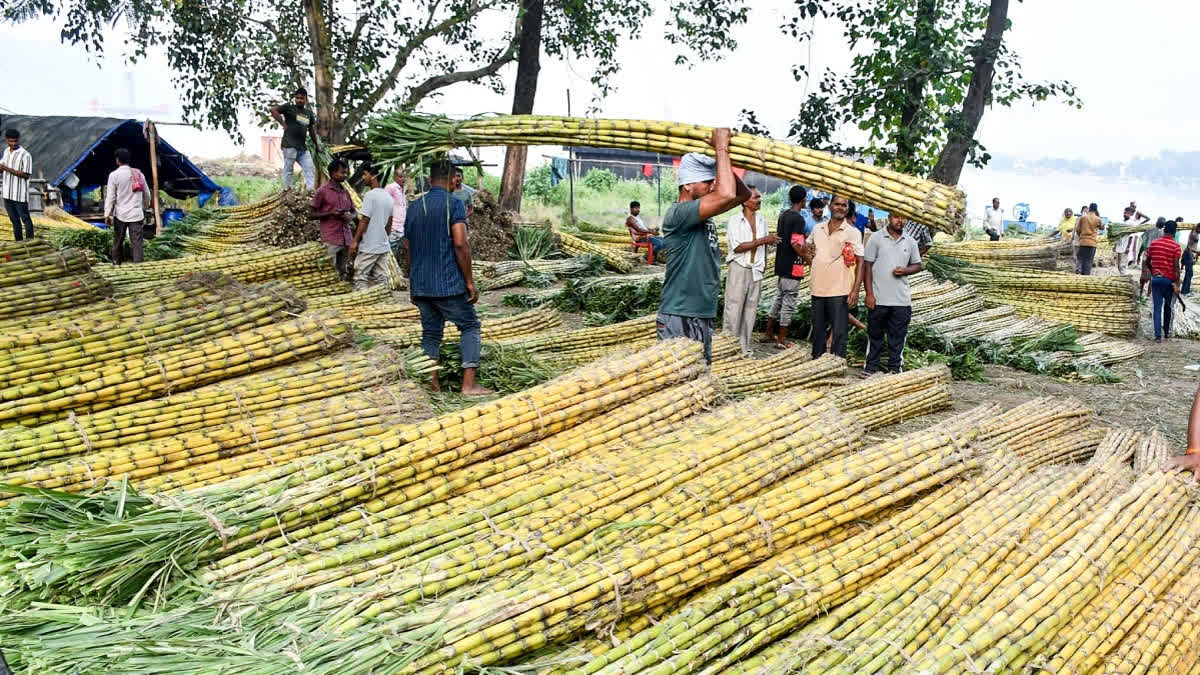As India celebrated Kisan Diwas 2024 on December 22, the nation remembered Chaudhary Charan Singh, who played an important role in the transformation of Indian farmers. He was a politician with a farmer’s heart, but one of his significant contributions was the promotion of sugarcane in western Uttar Pradesh and surrounding areas. This single step transformed the economic conditions and lifted the entire region towards prosperity
Over time, he also saw the threat of over-saturation of the sugarcane economy and suggested diversification, a timely advice not heeded which led to unsustainable growth of the sugarcane region. But perhaps it’s time for our nation and the present government to listen to his wise words on sustainable growth.
This brings us to the theme for the day, “empowering farmers for sustainable agriculture”. Now over the years, a lot has been said about increasing sustainability on our farms, but little has been achieved. The recent announcement of the Narendra Modi government to boost natural farming by releasing a budget of Rs 2481 crore, is a good step. We need to aggressively pursue natural farming given the challenges of climate change, deteriorating soils and water, rising input costs of industrial agriculture, etc.
Currently, natural farming too is plagued by many fundamental issues. Availability of organic high-quality seeds and produce, organic markets, reasonable pricing, and questionable certification standards are some of the prominent issues affecting the sustainable growth of natural farming.
Now if we are to think of solutions, we have to augment traditional agrarian methods in India with modern technology. This doesn’t mean allowing foreign corporations to take over organic farming or make our farmers exploitable units for big companies, but developing a healthy ecosystem for farmers, soils, water, and rural ecosystems to grow sustainably out of falling incomes, farmers’ suicides and ecological devastation.
As this day marks the birthday of Chaudhary Charan Singh, we must begin with the sugar belts of Western UP and Haryana. These areas have been rotting in debt with sugar mills and co-operatives societies defaulting on payments for sugarcane. The first step should be taken here, where instead of relying on the sugar mills only, the government needs to restart the decentralised khandsaris (traditional unrefined sugar cottage units) which were the mainstay of our age-old sugar economy.
Today, there is a growing demand for brown sugar and alternates to white sugar. Doctors are often proscribing white sugar from diets. Research is also pointing to the negative effects of sulphur in refined sugars. Meanwhile, if we look at the socio-economic side, debt, faulty payments, etc are stressing the sugarcane farmers and breaking the resilience of the region. Hence a majority of farmers' protests have been from the sugarcane belt.
Getting back to the solutions, we must have block-level khandsaris which are owned by farmers or created and funded through a co-operative model. These units, depending on whether they are organic or chemical input-based, can be categorised and monitored accordingly. Organic sugarcane growers can get a big boost, if their produce (sugarcane) can be converted into products like shakkar, boora, khand, jaggery, etc.
Using the co-operative model or FPOs they can be marketed under a special brand, and earn an added bonus each year, without running into debt or waiting for payments for years. Sugar is an everyday commodity that is in demand from the village to big cities and even exported out of India.
So Indian sugarcane organic farmers can even take advantage of digital marketing and analyse various market trends once they are organised under FPOs and other farmer-run and owned co-operatives. The government needs to promote financially the creation of such units and provide technological access to these small cottage industrial enterprises. This is one way of starting to rid the land of over-saturation and help them diversify. This will also set the trajectory towards sustainable growth, taking them away from the clutches of industrial factories, which are treating farmers as captives.
By supporting farmers-led sugarcane farming centres, the government can also take steps towards building sovereignty in the region and decrease dependence on the market economy.
Finally, the government can introduce a minimum price floor for organic sugarcane producers and have a parallel mechanism for organic sugarcane production at par with the chemical sugar industry. These are some ways through which we can aim to achieve resilience and sustainable growth in the Chaudhary Charan Singh region. Once this model is successful, one hopes that other regions also follow and swerve towards natural farming and sustainable agriculture.
Read More
- National Farmers' Day 2024: To Honour Farmers For Their Contribution To Society
- Khap Leaders Lend Support To Farmers' Movement, Call Mahapanchayat In Hisar On Dec 29
